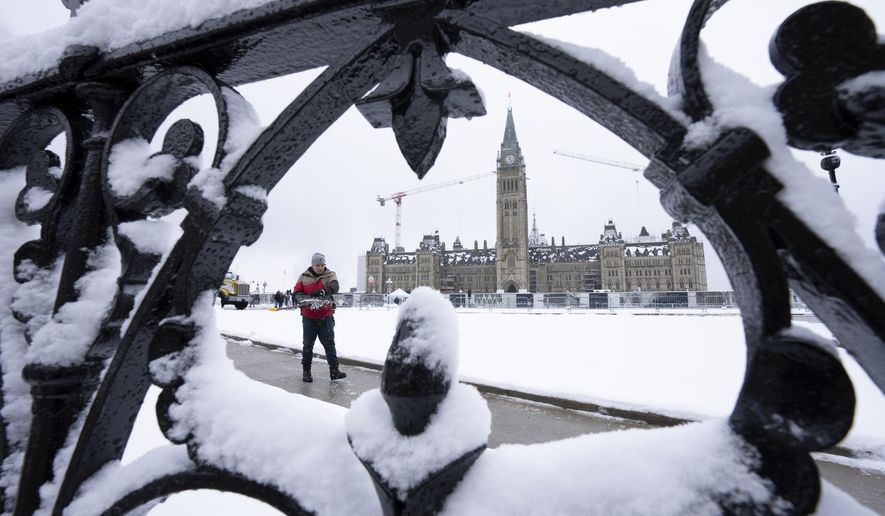Legislation introduced in Canada’s Parliament would eliminate the use of “belief in a religious text” as a defense against hate crime charges.
Repealing the exemption in Canada’s criminal code could criminalize sermons and messages using the Bible or other religious texts as the basis for critiquing other religions or addressing issues such as transgender rights, critics warn.
Yves-Francois Blanchet, leader of the minority Bloc Quebecois party, submitted the “private member’s bill” — defined as a measure not sponsored by a Cabinet minister or parliamentary secretary — in November and again last month. The measure received an initial reading in the lower chamber, but no action has followed.
Mr. Blanchet said when he introduced the bill that its purpose is to allow authorities to prosecute antisemitic speech. The measure is needed to “refrain from giving inappropriate and undue privileges to people within a society who use them to disturb the peace and harmony, especially if those privileges enable people to sow hatred or wish death upon others based on a belief in some divine power,” he told Parliament.
Two-thirds of Canadians surveyed Feb. 16-18 by the polling firm Leger said they support the measure.
But Jeff King, president of the Washington-based International Christian Concern, said Thursday the proposal is “designed to silence” people whose opinions differ from prevailing thought.
“We cannot urge direct violence against somebody,” he said, “but free speech means we all have very different opinions in a democracy [and] we’re supposed to have vigorous debates.”
He said the legislation could open the door to prosecuting anybody expressing sincere beliefs based on their religion’s sacred texts.
Under the proposal, he said, “you can’t say the Bible says so-and-so, or you could be arrested to be charged, you can be fined.” Despite labels, Mr. King said, “this [measure] has nothing to do” with combating antisemitism.
Mr. Blanchet did not respond to a request for comment made through his spokesperson.
Freedom of religious expression has been under attack in recent years.
In Britain, several people have faced repeated criminal charges, with no convictions, for standing outside abortion clinics after business hours and silently praying. In Finland, a prosecutor is appealing the second acquittal of Parliament member Paivi Rasanen and a Lutheran bishop who were accused of “hate speech” for stating biblical beliefs on homosexuality.
In August 2022, a regional court in Germany said 40 Days for Life, a pro-life group that held silent prayer vigils near an abortion counseling center in Pforzheim could not be barred from holding such demonstrations. The ruling overturned a city ban on such demonstrations that the Pro Familia abortion counseling center had requested.
David Cooke, campaign manager at the pro-life Campaign Life Coalition, said the Canadian bill “is really just a pretext to eliminate religious speech rights in Canada” and that Mr. Blanchet told Parliament that Canada “is a secular country.”
Mr. Cooke said laws already exist under which genocidal speech can be prosecuted.
“If, indeed, the government wants to crack down on that type of genocidal expression, there is already a provision in our Criminal Code, Section 318, which can be used, but … they’re not calling for [that] to be implemented,” Mr. Cooke said.
Instead, he said, “They’re using this [bill] as a pretext to clamp down on religious speech and to eliminate the protection we have in Section 319, which would allow people to share their beliefs and their values and biblical texts that relate to issues of the day, whether issues of faith or family or life, any number of issues. It’s going to basically take away our ability to do that.”
While the measure hasn’t advanced in parliament, Mr. Cooke said Canada’s lawmakers are moving ahead with an internet “censorship bill” that would create a “bureaucracy” to monitor online speech.
• Mark A. Kellner can be reached at mkellner@washingtontimes.com.




Please read our comment policy before commenting.